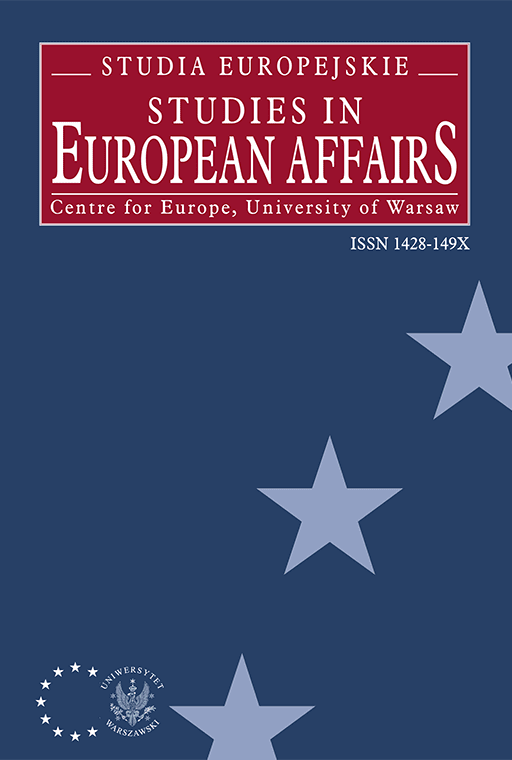
ISSUE: 1/2006
- Volume 37
- Number 1
- 2006
Subscribe NEWSLETTER
Studia Europejskie –
Studies in European Affairs
ISSN: 1428-149X
e-ISSN: 2719-3780
License
Articles published in the journal are under a Creative Commons Attribution – Non Commercial – No Derivatives 4.0 International License
Parlament państwa członkowskiego Unii Europejskiej a badanie zgodności projektów aktów prawa wspólnotowego z zasadą subsydiarności
Parliaments of EU Member States and examination of consistence of the Community legislation acts with the principle of subsidiarity
Abstract
There are good reasons for enhancing the role of national parliaments in the future system of the European Union. National parliaments have a unique role to play in activation of initiatives at the European level by investigating their consistence with the principle of subsidiarity. National parliaments are well placed to perform that function because they are not involved in the EU legislative process and hence their role in the process should be unbiased. The role of national parliaments, particularly in the area of subsidiarity and proportionality has finally been provided for in the Constitutional Treaty. However, this should not undermine the EU’s capacity
to make decisions efficiently. National parliaments have a distinct role to play within the EU and their enhanced involvement would help to strengthen democratic legitimacy of the Union and bring it closer to its citizens. More systematic exchange of information among national parliaments on methods and experiences should occur pivotal in increasing knowledge and awareness of European affairs and thus improve efficiency of national parliamentary scrutiny. For national scrutiny to be effective, it is important that national parliaments have the power to formulate their own positions on all proposals for EU legislative measures and actions. A new balance of power in the European Union after the Constitutional Treaty as regards the EU impact upon national institutions and policies will be based on:
• the role of national parliaments in scrutinising governments (national scrutiny systems);
• the role of national parliaments in monitoring the application of the principle of subsidiarity;
• the role and function of multilateral networks or mechanisms involving national parliaments at the European level in the EU-decision making process.
Language: Polish
Pages: 41-57
How to Cite:
Harvard
Czachór, Z. (2006) "Parlament państwa członkowskiego Unii Europejskiej a badanie zgodności projektów aktów prawa wspólnotowego z zasadą subsydiarności". Studia Europejskie – Studies in European Affairs, 1/2006, pp. 41-57.